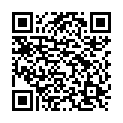|
|
|
| Module code: BBWL-544/644 |
|
|
4V (4 hours per week) |
|
5 |
| Semester: according to optional course list |
| Mandatory course: no |
Language of instruction:
German |
Assessment:
Written exam, project
[updated 02.01.2019]
|
BBWL-544/644 (P420-0079, P420-0080, P420-0104) Business Administration, Bachelor, ASPO 01.10.2016
, optional course
BBWL-2020-644 (P420-0079, P420-0080) Business Administration, Bachelor, ASPO 01.10.2020
, semester 6, optional course
|
60 class hours (= 45 clock hours) over a 15-week period.
The total student study time is 150 hours (equivalent to 5 ECTS credits).
There are therefore 105 hours available for class preparation and follow-up work and exam preparation.
|
Recommended prerequisites (modules):
None.
|
Recommended as prerequisite for:
|
Module coordinator:
Prof. Dr. Tatjana König |
Lecturer: Prof. Dr. Tatjana König
[updated 01.10.2016]
|
Learning outcomes:
After successfully completing this module, students will:
International marketing:
- be able to assess the basic challenges of intercultural marketing and explain the concept of culture and selected cultural studies,
- be able to characterize the orientation patterns of international market cultivation,
- have developed and demonstrated intercultural competence,
- be able to transfer the problems and strategies for transnational market entry and market development to specific application examples.
Market research:
- Students will be able to distinguish between the various sub-areas of marketing information and evaluate their suitability for solving different problems in a company,
- They will be able to describe the various steps in the market research process with their respective decision options,
- They will be able to help design a market research instrument, assess the challenges of a market survey and evaluate simple questions.
General topics:
- have developed their conceptual, technical and communicative skills from past semesters
- be able to develop and expand upon the content of the lecture
- be able to work independently on questions from the fields of international marketing and market research in the form of practical case studies and/or practical examples, thereby consolidating their theoretical knowledge
[updated 30.03.2021]
|
Module content:
1. International Marketing
Market cultivation orientation between standardization
and differentiation
The concept of culture, cultural dimensions, cultural distance and
cultural clusters
Market evaluation, market entry
Selecting and using marketing instruments in the international environment
Negotiating, CRM in an international context
2. Market Research
Basic principles and sub-areas of market research
- Phases of a market research project, designing questions and scales,
scale levels and evaluation options, SPSS training
- Implementation project in the field of market research
[updated 05.07.2021]
|
Teaching methods/Media:
Lecture mit case studies and project work inkl. presentations by the students
[updated 02.01.2019]
|
Recommended or required reading:
1. International Marketing
- Backhaus, K.; Voeth, M. (latest edition): Internationales Marketing, Stuttgart
- Meffert, H.; Burmann, C.; Becker, C. (latest edition): Internationales Marketing-Management, Stuttgart
- Müller, S.; Gelbrich, K. (latest edition): Interkulturelles Marketing, München
- Zentes, J.; Swoboda, B.; Schramm-Klein, H. (latest edition): Internationales Marketing, München
2. Marketing Information
- Berekoven, L., Eckert, W., Ellenrieder, P. (latest edition), Marktforschung Methodische Grundlagen und praktische Anwendung, Wiesbaden.
- Homburg, Ch. (latest edition): Marketingmanagement: Strategie, Instrumente, Umsetzung, Unternehmensführung, Wiesbaden (Teil II: Informationsperspektive und Kapitel 20: Internationales Marketing)
[updated 30.03.2021]
|

